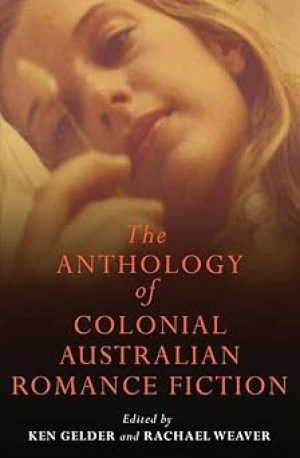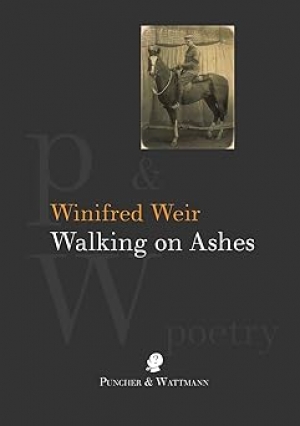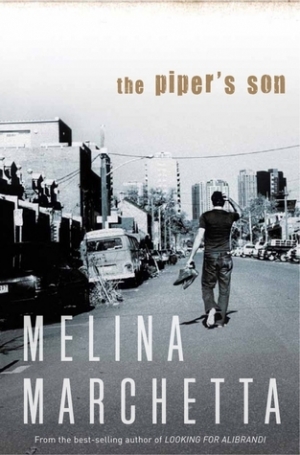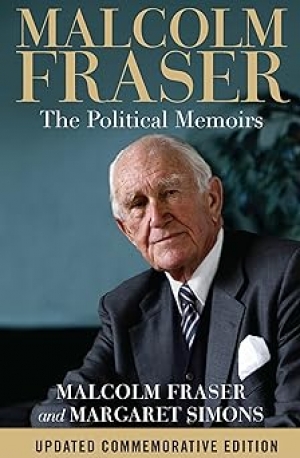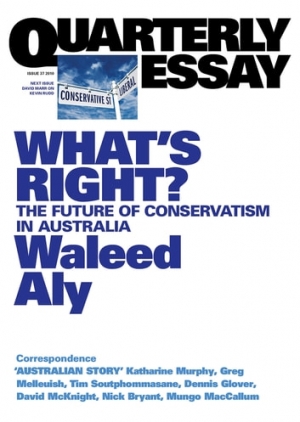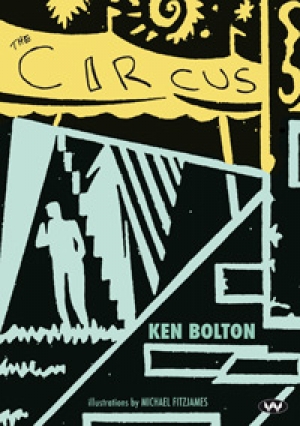Archive
What a wonderful thing is the essay! What a hymn to the human mind and its vagaries and cogitations – to its humanness. All honour to Australian Book Review and the Cultural Fund of Copyright Agency Limited for celebrating it with the Calibre Prize – and, of course, to our prize-winning hymnists.
To celebrate the essay with this degree of fanfare shows a certain amount of chutzpah, I think – of ‘courage’ in the Sir Humphrey Appleby sense of the word. (‘A courageous decision, Minister.’)
... (read more)Susan Sheridan reviews 'The Anthology of Colonial Australian Romance Fiction' edited by Ken Gelder and Rachael Weaver
The dreamy-eyed young girl from Peter Weir’s film Picnic at Hanging Rock, whose image adorns the cover of this anthology, gives a misleading impression of the ‘Australian girl’ who features in most of the stories. This girl may be the central figure in the colonial romance genre, as the editors propose, but she is characterised by energy and independence, rather than by the kind of sexually charged haze that surrounds the girls in the 1975 film. For the most part, her romantic experiences lead straight to marriage, give or take the odd misunderstanding along the way, and marriage was an institution entangled in economic security, social stability and, ultimately, the national destiny of white settler Australia. The Australian girl of the period was of necessity a clear-eyed realist where marriage was concerned. ‘Lorna Travis; A Christmas Story’ makes the economics of marriage very clear, while in Ada Cambridge’s ‘A Sweet Day’, an English aristocrat in disguise falls for a capable colonial girl and rewards her with a title as well as a wedding ring.
... (read more)Always an afterthought, last thing left
in that mad dash to spit and polish
before visitors – rare here, so I forget
how others might read you if they looked up:
weird residue of disuse, proof of slackness, antisocial.
Prithvi Varatharajan reviews 'Walking on Ashes' by Winifred Weir
In 1914 men left for war expectant of a great adventure,’ Winifred Weir writes in the introduction to her poetry collection. ‘So many died. So many returned haunted, silent, desperate with what they had seen and endured.’ Walking on Ashes is Weir’s attempt to understand the effects of war on her family; her father and brother fought in World War I and World War II, respectively. The book, loosely chronological, contains dates of battles and their locations (‘Gallipoli’, ‘Passchendaele 1917’, ‘Amiens, France, 1918’). Some poems are out of order, suggesting that the sequence of events is less important than their overall consequence. In Walking on Ashes, time – like Weir’s father’s right arm – is shattered by war. The point of view is fluid, too: it shifts between father, mother, daughter, and son, as each has an experience to relate.
... (read more)Not really? Tom Mackee? That boorish, pervy, smart-mouthed Year Eleven boy from Saving Francesca (2004), who offended Tara Finke whenever he opened his mouth, is the central character in Melina Marchetta’s new book. At least he loved music and was not a bad guitarist. Last time we met him, Tom became part of Francesca’s circle at school. Occasionally charming, a dab hand at witty repartee, he was falling for activist and feminist Tara Finke. Now he’s not sixteen anymore, but twenty-one (or thereabouts).
... (read more)Neal Blewett reviews 'Malcolm Fraser: The political memoirs' by Malcolm Fraser and Margaret Simons
It is unusual for a political leader to figure in the demonology of both the left and the right. Malcolm Fraser bears that distinction. For Labor he was the arrogant Western District squire, trampling on the rights of the workers; the hardline Cold War warrior and the abuser of the constitution. For Liberals he was the leader who denied them their Thatcherite moment in the sun and who, embittered by early retirement, decried their principles and their hero, John Howard. These memoirs are, above all, Fraser’s repudiation of these mythologies. The book is a strange hybrid, Fraser’s response being mediated by the journalist and writer Margaret Simons into a third-person narrative. In modern times, only Charles de Gaulle has dared such effrontery.
... (read more)Jay Daniel Thompson reviews 'What’s Right? The future of conservatism in Australia (Quarterly Essay 37)' by Waleed Aly
In the latest edition of Quarterly Essay, entitled What’s Right?, Monash University academic Waleed Aly argues that right-wing politics has lost its way in the twenty-first century. Aly’s engaging and sophisticated analysis will appeal to readers from around the political spectrum. Aly begins by arguing that the terms ‘Left and Right are the hallmark of a political conversation that is obsessed with teams …’ Such a ‘conversation’ is unhelpful, for many reasons. ‘Team Right’ is hardly homogeneous, and many of its members have, in recent decades, abandoned traditional conservatism. Aly supports this point by citing the Bush administration’s distinctly ‘un-conservative’ decision to invade Iraq, and the implementation of the controversial WorkChoices laws by John Howard’s government. Aly contends that such endeavours are by-products of neo-conservatism and neo-liberalism.
... (read more)Mike heaves the window down to slam it shut, and Di comes running across the carpet just in time to see the whole town change into black chimneys and glass flashes and this one WOW! comes so close i duck and the windows rattle and i see weird rooms over there like bright toilets and rooms with cupboards and enormous shadows flicker on the wallpaper, but im not ...
Why do you write?
To stop time, to figure it all out.
Are you a vivid dreamer?
Yes. And prone to sleep talking and singing and, absurdly, trumpet fanfares. As a child I had a recurring dream of flying crocodiles, concluding with the subtitle ‘Christian Television Association’.
... (read more)Mid-career reinvention is an exciting thing. Ken Bolton’s poem ‘Outdoor Pig-Keeping, 1954 & My Other Books on Farming Pigs’, in Black Inc.’s The Best Australian Poems 2009, was the most surprising poem in the book. Where were the friends, artists and cafés? Where were the small ironies? A larger irony was at work. Bolton’s new book, The Circus, is something else again: a wry, sly and affectionate long poem nothing like Frank O’Hara – generally seen as Bolton’s guiding influence – and not much like Bolton’s Australian peers either. While much of Bolton’s poetry relies on a bemused first-person narration, relentlessly questioning what a poem or even a thought can do, The Circus is narrated in a shifting third person. It makes quite a difference.
... (read more)
